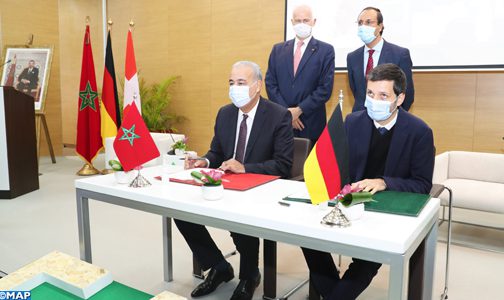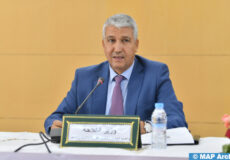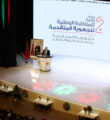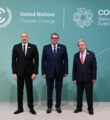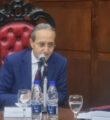Morocco, Germany Launch ‘Rural Resilience’ Cooperation Program on Water
Rabat – Morocco and Germany signed Tuesday in Rabat a new cooperation program in the field of water dubbed “Rural Resilience”.
The new program consolidates the achievements of the “AGIRE” program (Support for Integrated Water Resources Management), which has been, since its implementation in 2008, a model of Moroccan-German cooperation in this field.
The signing ceremony, chaired by Minister of Equipment, Transport, Logistics and Water, Abdelkader Amara, in the presence of Germany’s Ambassador in Rabat, Götz Schmidt-Bremme and ambassador of Switzerland to Morocco, Guillaume Scheurer, marks the end of the “AGIRE” program and heralds the launch of the new “Rural Resilience” program (Support for Water Resources Management for Poverty Reduction and Resilience Building).
Speaking on this occasion, minister Amara stressed that this event represents an opportunity to consolidate cooperation ties between Morocco and Germany, on the one hand, and between Morocco and Switzerland, on the other hand, in the water sector and to present the achievements and activities of the various projects carried out within the framework of this fruitful cooperation.
The “AGIRE” program, whose overall budget amounts to 22.7 million euros, with a 2.8 million euros contribution of the Swiss Confederation, is a model of fruitful cooperation in the water sector, he said.
Over the twelve past years, the program made it possible to provide the Water Basin Agencies of Tensift, Souss Massa and Um Errabiaa with technical assistance for the development of mechanisms, procedures and tools for efficient, integrated and sustainable management of water resources, Amara added.
According to the minister, the new “Rural Resilience” project is part of a perspective of consolidation of achievements and continuity of Moroccan-German cooperation.
“Rural Resilience” program is aimed at strengthening and supporting the stakeholders at the local, regional and national levels through capacity building and support to rural populations for the identification and implementation of resilient practices in the face of the variability of water resources, he explained.
The project, worth 5.6 million euros, will span over a period of four years (2020-2023) and will concern the scope of action of the River Basin Agencies of Tensift, Sebou and Ziz-Guir-Rhéris.
The “Rural Resilience” program will be oriented towards the involvement and improvement of living conditions of the most vulnerable rural populations, including strengthening their resilience to climate change.
For his part, Ambassador Schmidt-Bremme welcomed the “beautiful cooperation between Morocco and Germany” which is part of an exceptional strategic partnership between the two countries on the issue of water and climate change.
It is a “bilateral cooperation on an equal footing because Germany has learned a lot from the Kingdom’s considerable experience in water resource management,” he added.
The Swiss diplomat was pleased with the success of the 12-year trilateral program between Germany, Morocco and Switzerland, which has yielded “extraordinary results at the national, regional and local levels” in favor of better management of water resources.



